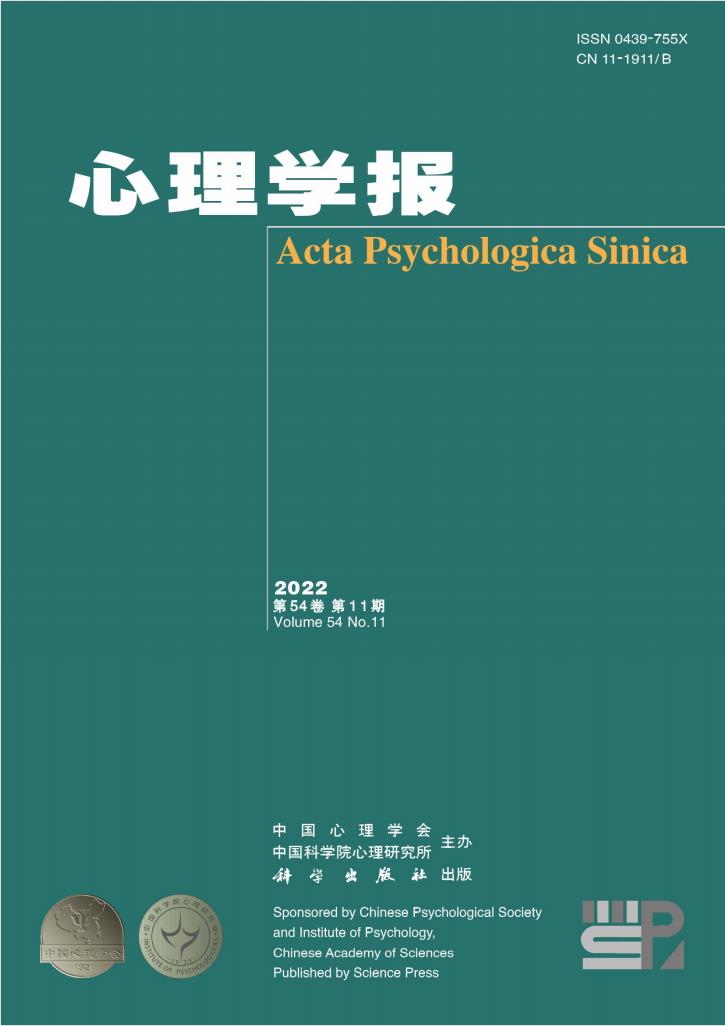The reciprocal relationships between head teachers’ negotiation management behavior and teacher-student relationship and primary school students’ externalizing problem behaviors from grades four to six: A cross-lagged study
IF 1.3
4区 心理学
Q3 PSYCHOLOGY, MULTIDISCIPLINARY
引用次数: 2
Abstract
problem negatively impact on the and future development of head students’ by adopting management behavior and the - student relationship on students’ externalizing problem behaviors. the transactional model that students’ externalizing problem behaviors may also affect teachers’ negotiation management behavior and the teacher - student relationship. present aims to explore the reciprocal relationships between head teachers’ negotiation management behavior and teacher-student relationship and primary school students’ externalizing problem behaviors from grades four to six in behaviors at Time 1 reduced the head teachers’ negotiation management behavior, decreased the closeness of the teacher - student relationship, and increased the conflicts of the teacher - student relationship at Time 2, which further affected the students’ externalizing problem behaviors, the teacher - student relationship, and the head teacher’s negotiation management behavior at Time 3. These observations deepen the understanding of the complex reciprocal relationships between head teachers’ negotiation management behavior and teacher-student relationship and primary school students’ externalizing problem behaviors from grade four to six in China. Additionally, the findings have important implications for preventing and intervening in students’ externalizing problem behaviors. The results reflect that the head teachers need to be aware of the negative “driver” role of students’ externalizing problem behaviors, and consciously use the positive “driver” role of negotiation management behavior to break the negative cycle driven by students’ externalizing problem behaviors.小学四至六年级班主任协商管理行为与师生关系及学生外化问题行为的交互关系:交叉滞后研究
通过管理行为和学生关系对学生外化问题行为的影响,问题对学生的未来发展产生负向影响。学生外化问题行为的交易模型也会影响教师的谈判管理行为和师生关系。本研究旨在探讨四年级至六年级小学生在时间1行为中的外化问题行为降低了班主任的谈判管理行为,降低了时间2师生关系的亲密性,增加了时间2师生关系的冲突性。进而影响时间3学生的外化问题行为、师生关系和班主任的谈判管理行为。这些观察加深了对中国小学四至六年级班主任谈判管理行为、师生关系与小学生外化问题行为之间复杂的互惠关系的理解。此外,研究结果对预防和干预学生外化问题行为具有重要意义。研究结果表明,班主任需要意识到学生外化问题行为的消极“驱动”作用,并有意识地利用谈判管理行为的积极“驱动”作用,打破学生外化问题行为驱动的消极循环。
本文章由计算机程序翻译,如有差异,请以英文原文为准。
求助全文
约1分钟内获得全文
求助全文
来源期刊

心理学报
Psychology-Psychology (all)
CiteScore
1.70
自引率
13.30%
发文量
1612
期刊介绍:
Acta Psychologica Sinica (ISSN 0439-755X) is a scholarly journal sponsored by the Chinese Psychological Society and the Institute of Psychology, Chinese Academy of Sciences, and published monthly by the Science Press.
Acta Psychologica Sinica has been included in many important national and international indexing systems such as SCOPUS (Elsevier), ESCI (Web of Science), PsycINFO (APA), CSCD. It is the flagship journal of the Chinese Psychological Society that publishes peer-reviewed original empirical studies and theoretical articles spanning the entire spectrum of scientific psychology.
Acta Psychologica Sinica publishes high-quality research that investigates the fundamental mechanisms of mind and behavior and aims to deliver scientific knowledge to enhance our understanding of culture and society. It welcomes submissions of manuscripts reporting research that is up-to-date, scientifically excellent, and of broad interest and significance.
 求助内容:
求助内容: 应助结果提醒方式:
应助结果提醒方式:


